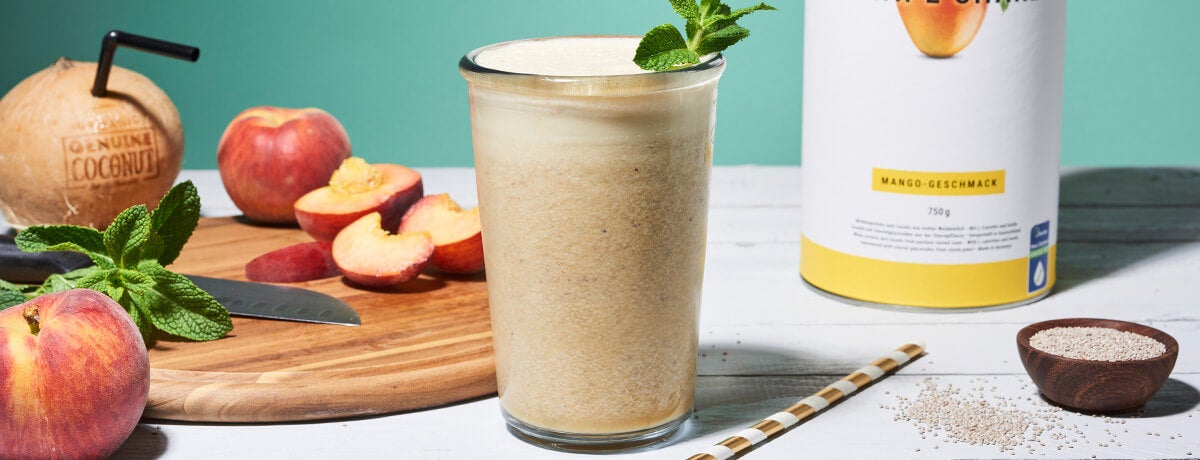Vitamin C: Sources, Effects, and Symptoms of Deficiency
 ©Foxys_forest_manufacture
©Foxys_forest_manufacture
Don’t want to come down with a cold in the winter? Make sure you get your fill of fruits and vegetables loaded with vitamin C.
Eating plenty of vitamin C is one great way to keep your immune system in tip top shape even during the darkest, coldest months of the year. Also known as ascorbic acid, it’s a key player in numerous metabolic processes and crucial to maintaining immune system strength. Keep reading to find out everything you need to know about vitamin C, including why it’s important for your health and the best ways to get it.
What is vitamin C?
Known also as ascorbic acid, vitamin C is a water-soluble vitamin that’s present in numerous fruits and vegetables like citrus and broccoli. It’s essential to consume on a daily basis because it can’t be stored in the body in large quantities.
Vitamin C was first found to be a vital nutrient in 1747, when sailors took to the sea and discovered that they would develop scurvy without it. In fact, the term ascorbic acid has origins in Latin and literally means “without scurvy.”
Sources of Vitamin C
This might come as a surprise but cherries actually contain more vitamin C than citrus fruits! Many fruits and veggies are surprisingly packed with this important nutrient. Find out which foods are the best sources of vitamin C in the table below.
Vitamin C-Rich Fruits
| mg of vitamin C per 100g serving | |
| Red cherries | 695-4827 |
| Rosehip | 1250 |
| Sea buckthorn berries | 450 |
| Currants | 189 |
| Strawberries | 64 |
| Lemons | 53 |
| Oranges | 47 |

Vitamin C-Rich Vegetables
| mg per 100g serving | |
| Bell peppers | 140 |
| Broccoli | 115 |
| Horseradish | 114 |
| Brussels sprouts | 112 |
| Kale | 105 |
| Cauliflower | 71 |
| Kohlrabi | 63 |
| Spinach | 52 |
| Red cabbage | 50 |
Our tip: Smoothies are by far one of the easiest ways to fill up on vitamins. There are so many tasty ways to reinvent the nutrient-rich drink, whether sweet or savory, and they’re an easy way to get your daily doses of vitamin C!

Our favorite smoothie and shake recipes
Here’s the daily recommended intake and deficiency symptoms to watch out for.
The recommended daily intake of vitamin C for a healthy adult is 10 mg/l. Consuming less than 6 mg/l per day may result in a deficiency. Vitamin C supplementation may be necessary if that is the case.
Causes of a vitamin C deficiency
It’s entirely possible to meet your daily vitamin C needs through a well-rounded diet alone. In fact, having a deficiency is a rare occurrence in industrialized countries, due to our easy access to fruits and vegetables.
However, there are other factors that can influence the amount of vitamin C you are or aren’t absorbing, including smoking tobacco, certain medications, and gastrointestinal diseases. In these cases, the likelihood of developing a deficiency increases ever so slightly and it may be in your best interest to take a vitamin C supplement.
A deficiency in vitamin C can also be caused by a poor diet or stress. Use our tips to ensure your diet is balanced and nutrient-rich no matter what.
Symptoms of a deficiency
Symptoms can vary greatly depending on the level of severity of a deficiency. In the early stages, loss of energy and strength will be most noticeable. Further along, one may experience an increased susceptibility to infections. When in doubt, get in touch with a doctor.

Is it dangerous to consume too much vitamin C?
In general, a healthy person doesn’t need to worry about overdosing on vitamin C. As a water-soluble vitamin, any extra vitamin C will be naturally excreted by the kidneys, which means there are little to no negative side effects from consuming too much.
On the other hand, those who are suffering from some kind of illness may experience diarrhea after over-consuming vitamin C. Luckily, this has only been observed in patients who’ve consumed extremely high doses of the nutrient.
How much vitamin C should you consume a day?
According to the NIH (National Institutes of Health), the recommended dietary allowance of vitamin C is 110 mg for adult men and 95 mg for adult women. This equals about 100g of Brussels sprouts or 200ml of freshly squeezed orange juice.
However, you may need to consume more vitamin C in certain situations. If you regularly work out or consume nicotine or alcohol, your vitamin C levels may be lower and it may be in your best interest to obtain closer to 150 or 200mg per day whether through diet or a vitamin C supplement.
Benefits and Effects of Vitamin C
Few vitamins have as many different functions as vitamin C. The nutrient is especially important because of its antioxidant properties. Studies show that it can protect your body from free radicals, which, when present in too high numbers, can lead to oxidative stress and the development of various diseases.
What are the different roles of vitamin C?
It contributes to…
- reducing mental and physical fatigue
- improving mental health
- regenerating certain forms of vitamin E
- proper functioning of the metabolism
- proper functioning of the immune system
- protecting of cells against oxidative stress
- proper functioning of the nervous system
- forming collagen for the skin and the proper functioning of blood vessels, bones, cartilage, teeth and gums
- increased iron intake
- proper functioning of the immune system during and after intensive physical activity
Vitamin C and Exercise
Your body uses more nutrients and minerals during an intensive workout than it does at rest. If you need a little help with meeting your vitamin C intake demands, our Daily Vitamins can help. In addition to being excellent vitamin C supplements, each capsule also contains vitamins B12 and D.
- Perfect for a hectic daily routine
- Contains 100% of the recommended daily intake of essential vitamins
- 100% vegan capsules and ingredients
Which vitamin C supplements are best?
If you think that your diet isn’t enough to cover your daily vitamin C needs, there are numerous vitamin C supplements that can help.
These are the most common types of supplements:
- Tablets
- Capsules
- Drops
- Injections
- Powder
- Fortified foods
Using vitamin C supplements is typically recommended only if you have a deficiency that’s been confirmed by a doctor or if you are unable to meet your nutrient demands through diet alone. To know which supplement is best for you, it’s important to examine your needs closely. If you are experiencing a severe deficiency, contact your doctor to find out what’s right for you.
Iron and Vitamin C
Fun fact: Vitamin C actually improves the body’s ability to absorb iron! This is especially important to remember for those who struggle with iron deficiencies, such as vegans and vegetarians. A glass of orange juice with your oatmeal, for example, will ensure you get all the iron you need from those oats.
Vitamin C Serum: The Beauty Secret
Vitamin C isn’t just great for your physical and mental well-being—it’s also beloved for its positive effects on skin health. Because of its antioxidant properties, it’s purported to have both brightening and anti-aging properties.
Vitamin C: Our conclusion
- Vitamin C is a water-soluble nutrient that contributes to the proper functioning of the immune system and protects the body from oxidative stress.
- It also contributes to the health of blood vessels, prevention of heart disease, breast cancer, and numerous other health conditions.
- Vitamin C is commonly thought to be great for warding off the common cold.
- Your body needs more nutrients after exercise than at rest, which is why it’s important to pay attention to the amount of vitamin C you’re consuming before and after a workout.
- Having a deficiency of vitamin C is rare in industrialized countries because of the wide availability of fruits and vegetables. However, vitamin C supplements can be used to ensure your needs are met.
Our tip: If you want to take your workouts to the next level, use our Body Check to discover what you need to do to reach your goals. Calculate your BMI and receive personalized nutrition and exercise tips and get started right away!Discover our Body Check
Sources for this article
We at foodspring use only high-quality sources, including peer-reviewed studies, to support the facts within our articles. Read our editorial policy to learn more about how we fact-check and keep our content accurate, reliable, and trustworthy.
































